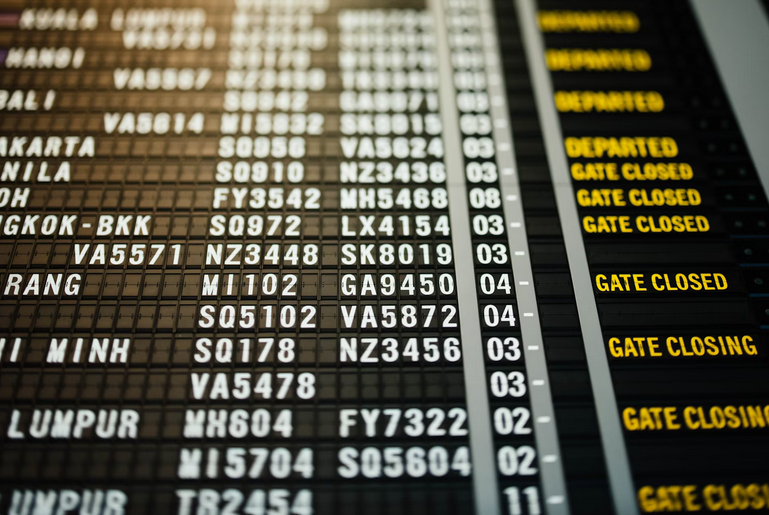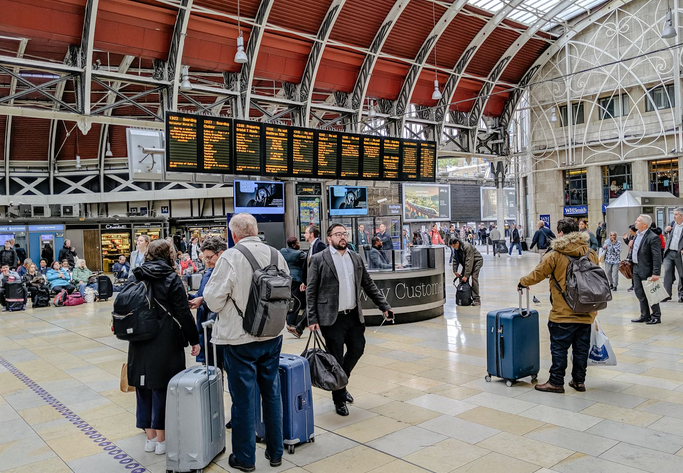Embarking on a journey, excitement in the air, and plans for adventure – the anticipation of a trip can be invigorating. However, the unwelcome guest in the world of travel is often the unforeseen flight delay. While delays can be frustrating, understanding their causes and common scenarios can help passengers navigate these disruptions more smoothly.
Frequent flyers should also be made aware of the EC261/2004 flight delay compensation, as it outlines compensation and assistance for passengers facing delays caused by airline-related issues. Familiarizing oneself with these rights can empower travelers to claim compensation for eligible delays, ensuring that the impact of disruptions is not only understood but also appropriately addressed.
Weather Woes

Nature is unpredictable, and adverse weather conditions remain a primary cause of flight delays. From thunderstorms and heavy snowfall to strong winds, airlines must prioritize passenger safety, leading to unavoidable delays.
Technical Troubles
Modern aircraft are marvels of engineering, but technical issues can still arise. Routine maintenance checks or unexpected glitches can lead to grounded planes, resulting in delays for passengers.
Air Traffic Congestion
The skies can get crowded, especially in popular travel seasons or at busy airports. Air traffic congestion often leads to delays as air traffic controllers manage the flow of planes, ensuring safe takeoffs and landings.
Crew Constraints
Airlines operate on tight schedules, and any disruption to the crew’s availability can cause delays. Issues like crew rest requirements, unexpected illnesses, or scheduling errors may impact the timely departure of a flight.
Security Snags
Enhanced security measures are vital for air travel safety, but they can also contribute to delays. Stringent security checks and protocols, especially during peak travel times, may extend the time needed for boarding and departure.
Mechanical Malfunctions
While routine maintenance is scheduled to prevent issues, mechanical malfunctions can still occur unexpectedly. Airlines prioritize passenger safety, and if any mechanical concerns arise, delays may be necessary to address and resolve the issues.
Late Arrivals and Turnaround Times

A ripple effect can occur when an incoming flight is delayed, impacting the departure of the next flight that utilizes the same aircraft. Additionally, quick turnaround times between flights can leave little room for error, making delays more likely.
Airport Operations
Beyond the control of airlines, airport operations can also contribute to delays. Issues such as runway closures, equipment malfunctions, or insufficient ground staff may hinder the smooth flow of departures.
Regulatory Requirements
Airlines must adhere to strict aviation regulations, and compliance with these rules can sometimes result in delays. From mandatory checks to regulatory paperwork, ensuring adherence to guidelines is non-negotiable.
Unexpected Events
Events like strikes, political unrest, or natural disasters in a destination can lead to unexpected delays. These scenarios, while rare, can significantly impact travel plans.
Navigating Delays: Tips for Passengers
In the dynamic realm of air travel, delays can be an unwelcome but common occurrence. To mitigate the impact of unexpected disruptions, passengers can employ a set of practical tips for a smoother experience. Staying informed is paramount. Regularly check the flight status through airline apps or official websites to receive real-time updates. Planning ahead and incorporating buffers into itineraries, especially for tight connections, helps alleviate stress if delays occur. Consider investing in travel insurance with coverage for delays to provide financial protection and peace of mind.
While flight delays are an inevitable aspect of air travel, understanding their common causes empowers passengers to navigate these situations with resilience and adaptability. By staying informed, planning ahead, and adopting a flexible mindset, travelers can transform the challenge of delays into an opportunity for patience and preparedness.




